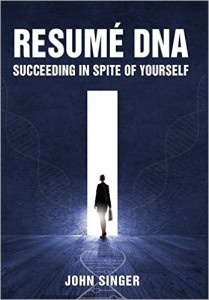Your #Career : #CareerAdvice – 5 Myths That Prevent #JobSeekers from Overcoming Failure…So if you’ve Been Hearing Rejection after Rejection Lately — or Worse, No Responses at All — it’s Time to Set Things Straight.
For many people, the job search is a mysterious and frustrating process. Unless you’re a recruiter or hiring manager, you usually don’t have a good idea of what goes on behind the scenes — and because of that, people tend to come up with their own ideas of what happens, and what it takes to be successful.
Often, this works like a game of telephone: You may start out with a grain of truth, but it will get repeated and altered so many times that it ends up being completely misinterpreted. As a result, buying into these “common sense” ideas and pieces of advice can actually end up hurting your chances of scoring your dream job.
So if you’ve been hearing rejection after rejection lately — or worse, no responses at all — it’s time to set things straight. Read up on the most pervasive job search myths out there, what the facts of the matter are and how you can tweak your job search for better results.
Myth #1 You Should Send as Many Resumes as Possible
So many job seekers think their odds of hearing back are directly proportional to how many times they blast their resume out to recruiters. There is some merit to the idea that you’ll need to apply to multiple opportunities, but taking a total spray-and-pray approach is one of the worst things you can do.
“While applying to more jobs does increase potential callbacks, remember not to sacrifice quality for quantity. Recruiters will quickly trash applications that are generic or a poor fit,” says Christopher K. Lee, Career Consultant and founder of Purpose Redeemed.
Instead, you should “focus your job search on jobs you really want, and jobs where you compete against the best applicants in the pool,” adds career concierge and hiring consultant Kim Stiens of Ranavain.
And if you really want to stand out, customize each application you submit, says Cheryl E. Palmer, Executive Career Coach and owner of Call to Career.
“Carefully review the vacancy announcements for different positions and then tailor your cover letter accordingly so that you can convince a hiring manager that you are right for the job,” Palmer recommends.
Like this Article ? Share It ! You now can easily enjoy/follow/share Today our Award Winning Articles/Blogs with Now Over 2.5 Million Growing Participates Worldwide in our various Social Media formats below:
FSC LinkedIn Network: www.linkedin.com/in/fscnetwork
Facebook: http://www.facebook.com/pages/First-Sun-Consulting-LLC-Outplacement-Services/213542315355343?sk=wall
Google+: https://plus.google.com/115673713231115398101/posts?hl=en
Twitter: Follow us @ firstsunllc
Question: Want the ‘the best/current articles/blogs on the web’ on Job Search, Resume, Advancing/Changing your Career, or simply Managing People?
Answer: Simply go to our FSC Career Blog below & type(#career, #leadership, #life) in Blog Search: https://www.firstsun.com/fsc-career-blog/
What Skill Sets do You have to be ‘Sharpened’ ?
Continue of article:
Myth #2 You Shouldn’t Apply if You Don’t Meet All the Requirements
On the opposite end of the spectrum, some job seekers are hesitant to apply to any job with a description that doesn’t match their skills and experience 100 percent.
“Many job seekers refrain from applying to positions where they don’t meet all the listed qualifications. This is a shame because some of them would excel in those roles,” says Lee. “Truth is, job requirements are often a wish list. Few applicants will meet all the points.”
A good rule of thumb: if you match at least 75-80 percent of the requirements, it’s worth applying.
“Speak to how strong you are in the other areas, and highlight any areas of experience which demonstrate you’ll be able to pick up the lacking skill quickly,” recommends business coach Dave Labowitz.
Myth #3 If You’re Qualified for the Job, You’ll Get It
While qualifications are important, they’re only part of the equation.
“Too many job seekers believe they should get the job because they have experience. Yes, experience is important, but it doesn’t help you stand out,” says career coach and resume writer Melanie L. Denny. Rather than simply assuming you’ll get the job due to your stellar track record, “focus on the value you have produced for past employers in the form of achievements,” she recommends.
Another reason hiring managers may choose a less qualified candidate is if they prove to be a better culture fit. If you have all of the necessary skills, but don’t seem like you could work well with others at the company, that’s a big red flag.
One way to combat this is by only applying to companies that you know you would be compatible with. But if you’ve already found a good match, you can prove you’re a good culture fit in your application materials — particularly your cover letter. Which leads us to myth number four…
Myth #4 You Don’t Need a Cover Letter
Sure, not every recruiter or hiring manager will read a cover letter — but enough do that it’s still worth taking the time to write one, says Stiens.
“While some hiring managers don’t read them, a lot still do, and for those hiring managers, your cover letter is at least as important as your resume. While a resume is a fairly rote, formulaic document, cover letters are your place to show your personality and show how you operate on the job,” she explains.
Cover letters can especially help demonstrate the oh-so-important aforementioned culture fit.
“With today’s companies caring far more about cultural fit than ever before, a cover letter is your opportunity to show them who you are, not just what you’ve done. This will differentiate you from other applicants and increase the likelihood of an interview,” Labowitz says.
To demonstrate that culture fit, share relevant anecdotes from your career.
“Soft skills are key, and using anecdotes in your cover letter are the most effective way to demonstrate them in an application,” Stiens recommends. And remember — no one-size-fits-all cover letters. “You should submit unique, custom cover letters for each job you apply to (though you can certainly recycle material and anecdotes that are relevant to multiple jobs).”
Myth #5 All You Can Do Is Apply
So you satisfy most of the job requirements and have a great resume and cover letter that share what you could bring to the company that other candidates couldn’t. And yet, you still aren’t hearing back from recruiters. What gives?
“Several of my clients think having a strong resume is enough to get them the job… [fusion_builder_container hundred_percent=”yes” overflow=”visible”][fusion_builder_row][fusion_builder_column type=”1_1″ background_position=”left top” background_color=”” border_size=”” border_color=”” border_style=”solid” spacing=”yes” background_image=”” background_repeat=”no-repeat” padding=”” margin_top=”0px” margin_bottom=”0px” class=”” id=”” animation_type=”” animation_speed=”0.3″ animation_direction=”left” hide_on_mobile=”no” center_content=”no” min_height=”none”][but] if you don’t get that resume in front of the right person (your potential future boss) and sell yourself in an interview, you won’t be hired,” Denny says. “Make sure you are strategic about marketing yourself and master the art of selling your value to a hiring manager.”
The best way to do that, experts agree, is to network. If you know somebody at a company you want to apply to, ask if they’d be comfortable referring you. If you don’t know anybody at the company, look online to see who you can connect with and send them a friendly email or LinkedIn message requesting an informational interview. If all goes well, you can ask them for a referral.
Don’t get too in your head about who you “should” be connecting with. Some job seekers think “I can’t reach out to people I worked with 10 years ago and haven’t spoken with since then — it would be an imposition,” says Career/Executive Coach Tammy Gooler Loeb. But put yourself in their shoes. “If this person reached out to you after 10 years, would you feel imposed on or flattered that they contacted you? More often the latter, and you’d likely be happy to do anything you can to be helpful to them,” she points out.
And don’t hesitate to connect with somebody just because they’re not directly recruiting or hiring for the role.
“Most people find their next meaningful role through a third-, fourth- or fifth-degree connection and how they reached that point may likely have been through a string of connections that are not necessarily in your industry or doing a role similar to yours,” Gooler Loeb says. “Think of those people you know who seem to ‘know everybody’ and ask them who they know may be good people for you to speak with to learn more about companies that are growing or hiring.”
GlassDoor.com | June 13, 2018 | Posted by Emily Moore
[/fusion_builder_column][/fusion_builder_row][/fusion_builder_container]




















